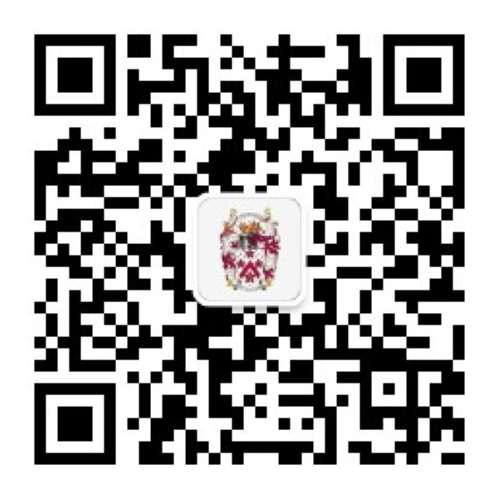Teaspoons of Change, for A Green Future
On January 19, d'Arcy Lunn, Head of Sustainability and Global Citizenship at Education in Motion (EiM), gave a presentation on the theme of ‘Teaspoons of Change’ to students and staff at Dulwich Zhuhai, encouraging students to set goals related to their studies, personal well-being, the environment, and the community in the new year, and to make positive changes for themselves and their communities through small actions.
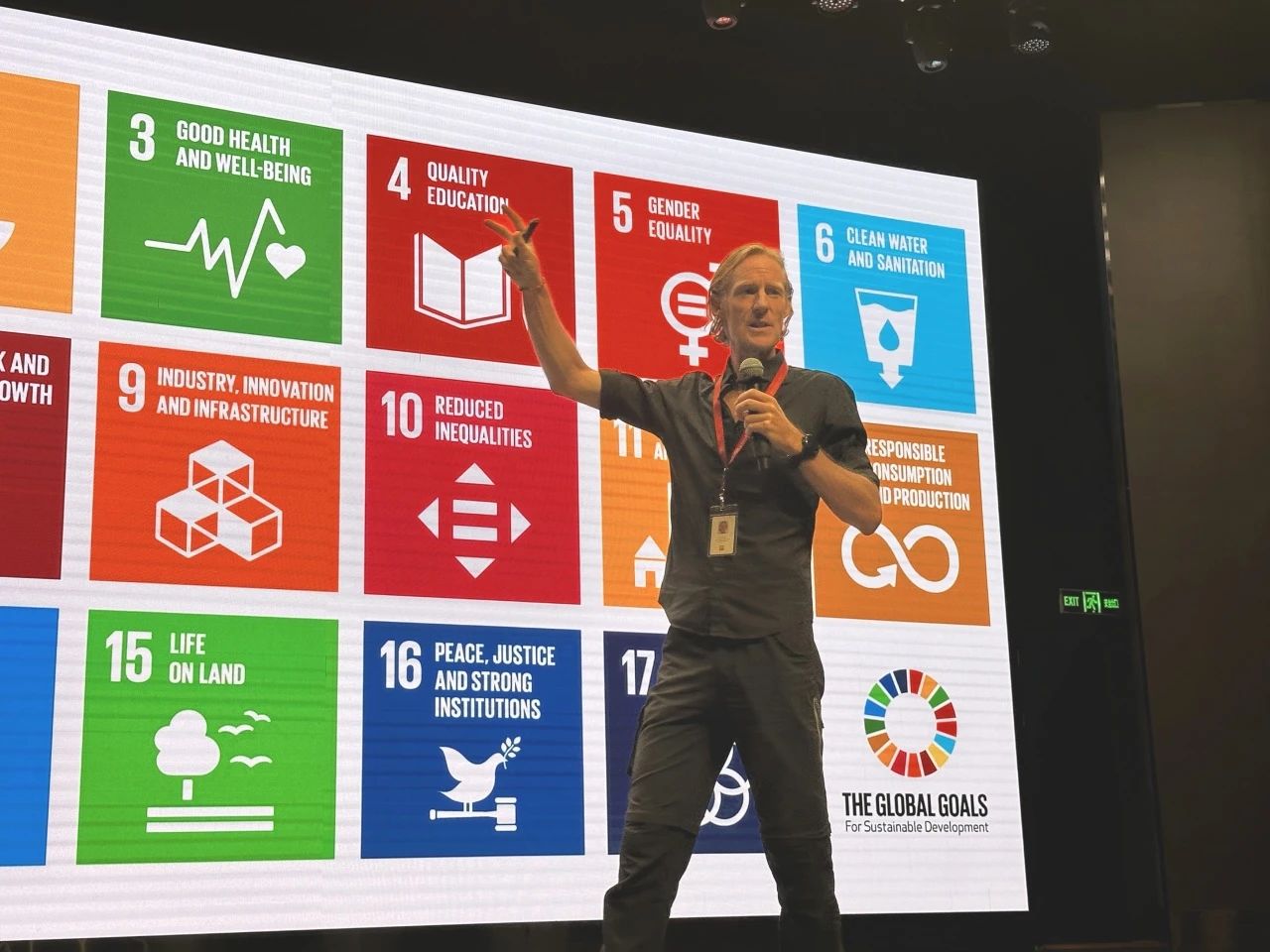
Teaspoons of Change
Small but significant ideas, attitudes & actions that have a positive impact on people and the planet
“This is where we not only look at ways to help others but also look at our own lives and how we can make a difference just in our own personal choices, decisions and actions that have a positive impact on people and the planet creating teaspoons of change!” —— d'Arcy Lunn
d'Arcy Lunn elaborated on the UN's 17 Sustainable Development Goals (SDGs) in detail, translating these seemingly ambitious goals into ones that are within everyone's reach.
For example, ‘ZERO HUNGER’ can be translated into ‘EATING BETTER’, and ‘RESPONSIBLE CONSUMPTION AND PRODUCTION’, can be translated into ‘LIVE BETTER’. What is even more encouraging is that more and more companies are developing products that lead to sustainable lifestyles.
 Carbon Negative Ice Cream
Carbon Negative Ice Cream
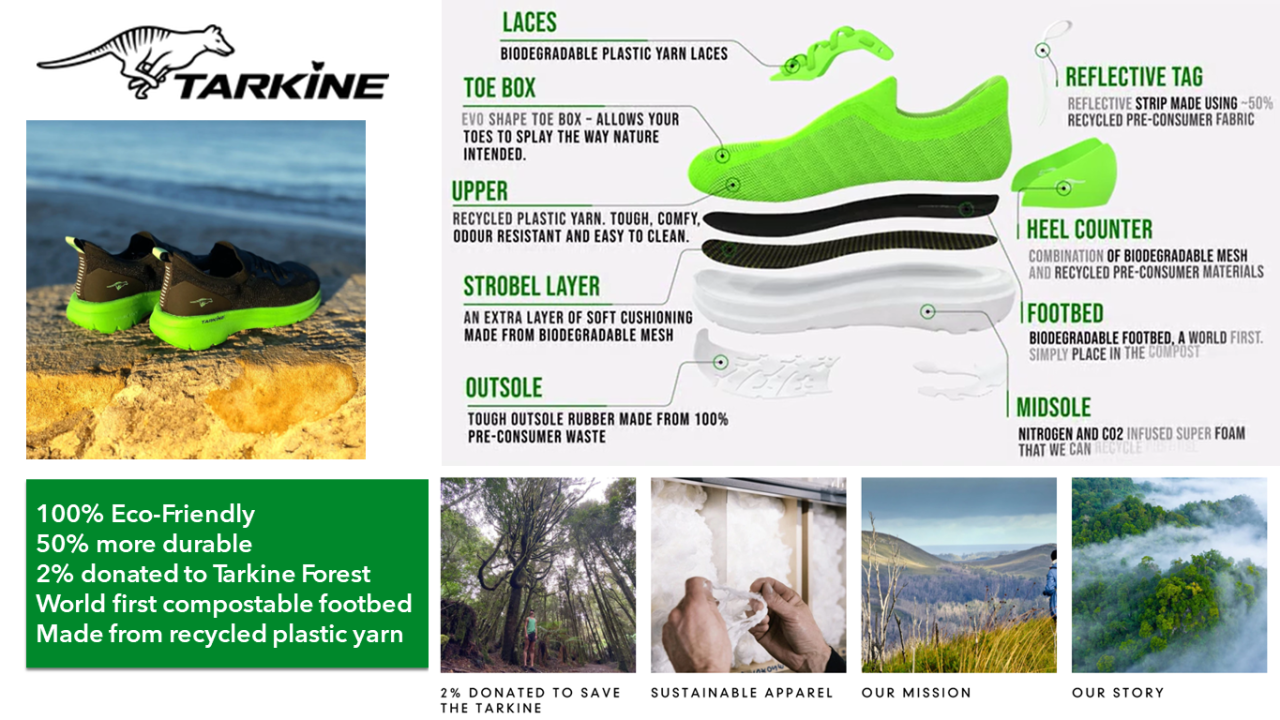 Eco-friendly Sneakers
Eco-friendly Sneakers
'Knowing I'm connected to people and the planet.' d'Arcy Lunn stated being a Global Citizen.
He shared that this is only one meaning of a global citizen. What is more important is that we all have our own meaning and we specifically know what being a global citizen means to us - how we think, what we feel, what we say, and most importantly what we do!
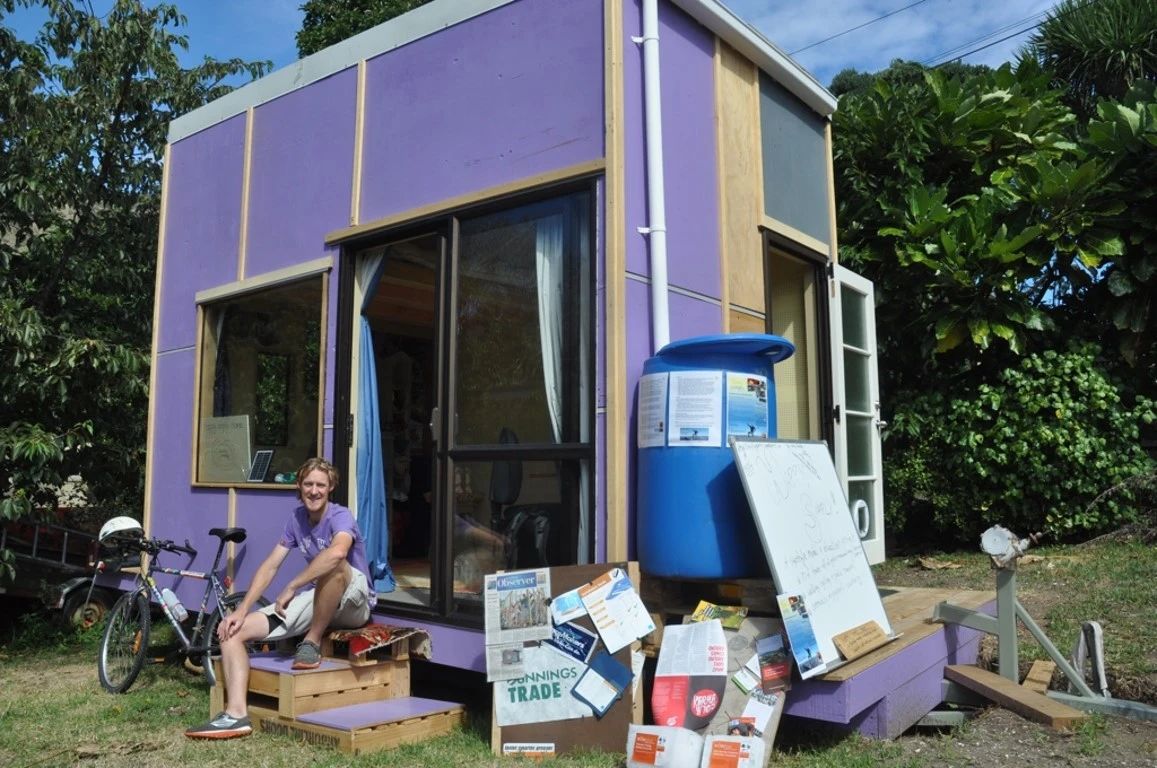 d'Arcy and his solar-powered house Students working on their goals
d'Arcy and his solar-powered house Students working on their goals
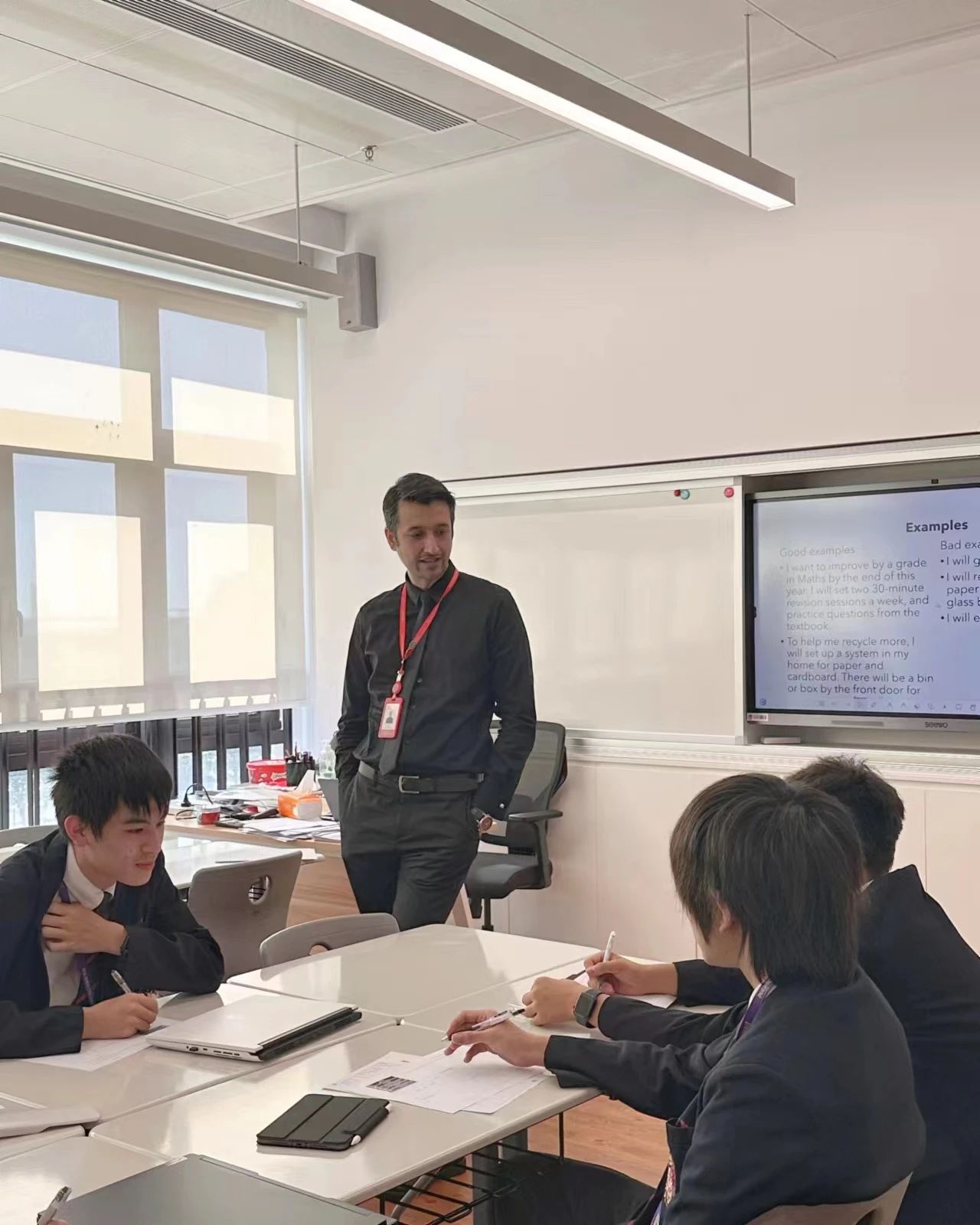 Students working on their goals
Students working on their goals
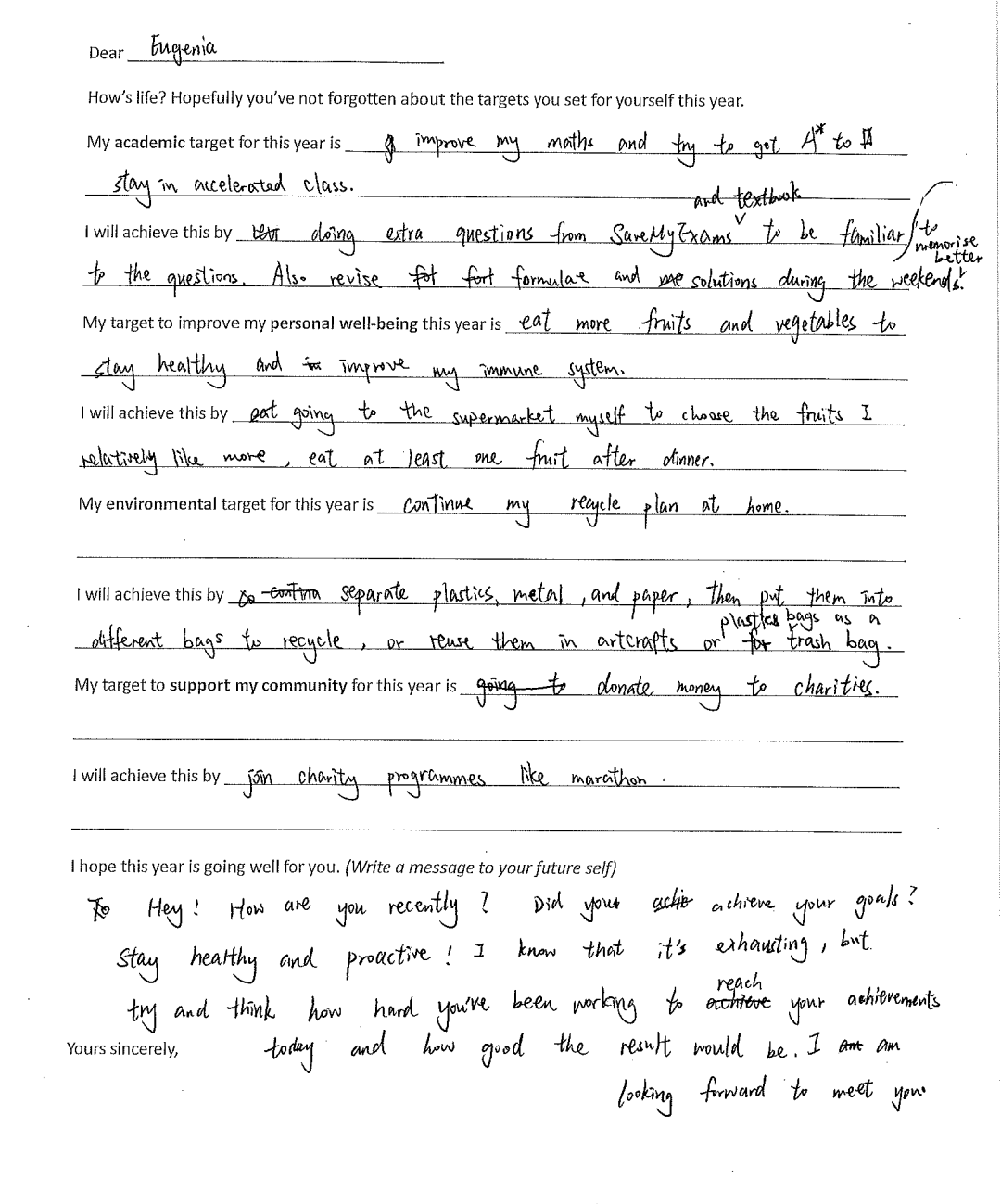 Four Targets of New Year Solution by Eugenia L (Y10), Nicole Y (Y10), Thomas (Y12)
Four Targets of New Year Solution by Eugenia L (Y10), Nicole Y (Y10), Thomas (Y12)
d'Arcy Lunn gave the students a framework of ‘four targets’ in the areas of learning, environment, community, and personal health. Students are also encouraged to set their goals using the ‘SMART’ principle. After a few months, they can review and measure whether their goals have been achieved.
Lastly, d'Arcy Lunn shared resources from organisations and websites related to sustainability where students can access a wealth of information.





